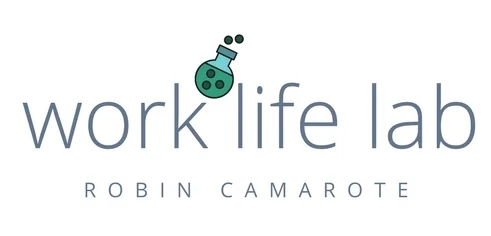Professional Meeting Facilitation
I believe in the tremendous power of people coming together for a common purpose. Facilitation helps ensure the greatest return for the time invested.
In addition to skilled facilitation, I provide meeting design services which move our clients’ objective from conception to execution. I help clients create more than “just another recurring meeting.” Whether you are planning a refresh and reboot within your organization, a semi-annual multi-day conference or retreat, I can help design the agenda, content, pace, and tone to effective meet your goals.
Meeting Facilitation Process and Approach
Meeting Preparation: Review objectives, draft kick-off agenda and exercises, finalize materials
- Hold advance discussions project team to understand the purpose, goals, and objectives
- Conduct a series of development and review conference calls to prepare the topics and focus areas for agendas, background materials, and exercises
- Understand how the current dynamics impact and provide opportunities for work sharing and collaboration—both what is working well and what could be improved. Gather any other additional information and context that should be considered
- Discuss the optimal room setup and equipment requirements
- Finalize the agenda
Meeting Activities: Facilitate the meeting (capture observations and action items throughout)
- Ensure that time is spent productively and that the discussion leads to decisions and actions. Advise the group on how the agenda or discussion may need to be adjusted to reach the group’s goal
- For all meetings, arrive in advance to ensure that the room is set up according the needs identified during planning, for example, the arrangement of tables, access to whiteboards, and projectors, awareness of restrooms and break areas, etc.
- Proceed through the agenda, making notes and observations, whenever possible. Encourage collaborative participation: make a mental note of any participants who appear not to be comfortable speaking up and manage those who may be perceived to be dominating the conversation
- Conduct check-ins during each break with the meeting organizers to ensure that the group is on track
- Close out the meeting and briefly discuss the meeting’s progress and tone with meeting organizers at the close of the day to hear any fresh observations, concerns, or breakthroughs
Meeting Documentation: Assemble strengths and develop performance metric map
- Draft and deliver a summary of key agreements, action items, and opportunities in two forms—one a comprehensive report and one an executive summary
- Using the data gathered from the participants during the meeting and exercises, prepare a matrix of the strengths and opportunities that could be used in future initiatives and assignments
- Develop a high-level activity tracking or performance metric map that outlines how the program can track progress against goals
Final Report: Document meeting activity documentation and close out the support effort (with debrief)
- Once the client has had time to review the observations (meeting notes, actions, and goals), draft a final report for review
- Incorporate any feedback on the final report
- Hold a closeout meeting to debrief on observations made about the team dynamic
- Review any formal feedback received on the meetings and facilitation itself or discuss any informal or passing comments made on the effectiveness of the sessions
Meeting Facilitation Blog Posts
For more on my approach to meetings, check out the short blog posts below.
- Better Virtual Meetings: A process and checklist for hosting better conference call
- Meetings Are My Snow: A lighthearted view of meetings and how to plan to get the most out of yours
- Less Fluff, More Stuff: Understanding the underlying purpose of (sometimes) annoying work practices and how to get more value out of our time at work

